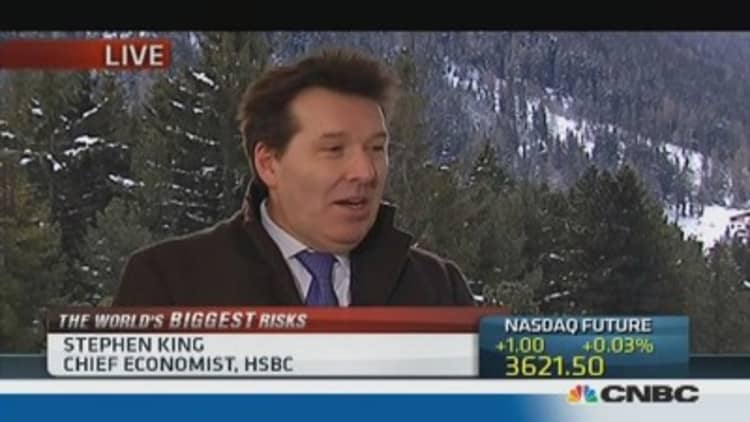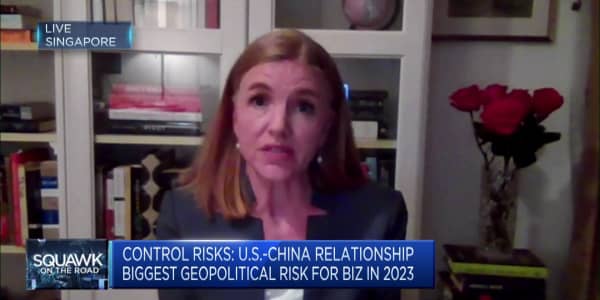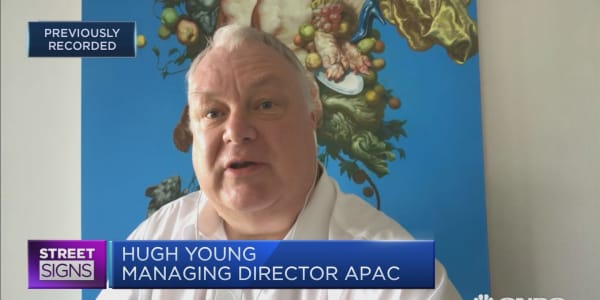
Central banks must focus on the possibility that inflation will be much lower than expected in 2014, according to HSBC's chief economist Stephen King, who warned that disinflation would be one of the world's biggest challenges of the next year.
Speaking at the World Economic Forum in Davos, King stressed that over the last 12 months, inflation had come in lower than expected "to a considerable degree." He added that central banks' assumptions that inflation would pick up as activity does was "a rather complacent view."
(Read more: Deflation wars? Economists fear Japan-style lost decade)
"What they (central banks) haven't admitted yet is that the inflation data itself can surprise continuously on the downside. That raises the specter of deflation; worries of a Japan-style lost decade," he said. "Those kind of things are still the big issue."
His comments come amid growing concern that not dealing with weaker prices could cause a downward economic spiral. Earlier this month, International Monetary Fund Managing Director Christine Lagarde told an audience in Washington that "if inflation is the genie, then deflation is the ogre that must be fought decisively."
The euro zone was the region most at risk of outright deflation, King warned.
(Read more: Europe needs a credible deflation strategy)
One result of deflation is to push down demand, as people hold off purchases in the hope of more price declines. It can also cause increased unemployment and even lead to economic depression.
Japan, for instance, suffered what has becomes known as a "lost decade" to deflation, when companies cut their prices to revive lackluster demand, which in turn hit businesses' revenue and had a knock-on effect on the economy.
King said that in the 1990s there was a complacency in Japan that it would never descend into deflation - and the lessons was for central banks to be aware of that risk when setting policy.
"I think that's really important in terms of what happens over the next 12 months," he added.
(Read More: Germany's economic critics 'can't have it both ways': Ifo)
Currency war concern?
King was asked also whether we should be concerned about currency wars – when a government deliberately weakens it currency to bolster exports – going into 2014.
"I think it's already happened, frankly," he said. "We've seen big drops in sterling in 2008; big drops in the yen in 2012 - there's no doubt that countries are trying to succeed by pushing their currencies lower."
—By CNBC's Katrina Bishop. Follow her on Twitter @KatrinaBishop and Google






